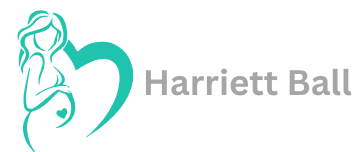Table of Contents
TogglePregnancy can feel like a rollercoaster ride, filled with thrilling highs and unexpected twists. But when food allergies crash the party, it can turn a delightful buffet into a minefield. Suddenly, that once-beloved peanut butter sandwich feels like a ticking time bomb. Navigating cravings and allergies during this special time is no small feat, and it’s essential to stay informed.
Understanding Pregnancy Food Allergies
Managing food allergies during pregnancy requires awareness and education. Allergies can significantly influence dietary choices.
What Are Food Allergies?
Food allergies occur when the immune system mistakenly identifies certain foods as threats. Common allergens include peanuts, tree nuts, dairy, eggs, soy, and shellfish. Those affected might experience symptoms ranging from mild hives to severe anaphylaxis. It’s essential to identify specific allergens to avoid reactions. Some individuals develop allergies for the first time during pregnancy, while others notice changes in their existing allergies.
How They Can Affect Pregnancy
Food allergies can lead to complications during pregnancy. Experiencing allergic reactions may increase stress, affecting both the mother and the baby. Severe reactions can necessitate emergency medical intervention, posing risks for both parties. Moreover, restrictive diets often lead to nutritional deficiencies, which can hinder fetal development. Consulting with healthcare providers ensures personalized dietary plans that consider allergy management while promoting maternal and fetal health. Regular monitoring allows for adjustments as pregnancy progresses.
Common Food Allergies During Pregnancy

Pregnant women may encounter various food allergies that complicate dietary choices. Awareness of common allergens is crucial for ensuring health and safety during this time.
Peanuts
Peanut allergies rank among the most prevalent food allergies during pregnancy. An allergic reaction to peanuts can prompt symptoms ranging from mild hives to severe anaphylaxis. Expecting mothers with this allergy should steer clear of all products containing peanuts and read labels diligently. Consulting a healthcare provider about alternative protein sources can also be beneficial.
Tree Nuts
Tree nut allergies often accompany peanut allergies, affecting many pregnant women. Symptoms may include swelling, difficulty breathing, and gastrointestinal distress. Eliminating tree nuts, such as almonds and walnuts, from the diet is essential. Choosing nut-free snacks and alternatives ensures safety while still maintaining a balanced diet. Awareness of cross-contamination in packaged goods remains important for pregnant women.
Dairy
Dairy allergies can pose challenges for pregnant women. Reactions to milk can cause skin irritations and digestive issues. Many expectant mothers must avoid all dairy products, including cheese and yogurt, to prevent allergic reactions. Lactose-free or plant-based alternatives provide safe nutritional options. Consulting a specialist to ensure adequate calcium intake is recommended.
Eggs
Egg allergies affect a significant number of individuals, including pregnant women. Reactions may vary, with symptoms like rashes or respiratory difficulties. Many expecting mothers need to avoid both eggs and products containing eggs. Nutritional substitutions, such as flaxseed or applesauce in baking, offer viable alternatives. It’s important for mothers to discuss their dietary options with healthcare providers.
Wheat
Wheat allergies can lead to various allergic responses during pregnancy. Symptoms often manifest as gastrointestinal discomfort, skin rashes, or respiratory issues. Pregnant women may require a strict gluten-free diet to prevent adverse reactions. Safe alternatives like quinoa and rice provide necessary carbohydrates without the risk. Regular consultation with nutrition experts can help in crafting a balanced and nutritious meal plan.
Symptoms and Diagnosis
Pregnancy food allergies can manifest through various symptoms. Recognizing these symptoms promptly is crucial for the health of both mother and baby.
Recognizing Allergy Symptoms
Common signs of food allergies during pregnancy include skin reactions, digestive issues, and respiratory problems. Skin symptoms may involve hives or rashes. Digestive issues often present as nausea, vomiting, or diarrhea. Respiratory problems can include wheezing or difficulty breathing. Monitoring these symptoms closely helps identify allergens effectively.
Diagnostic Tests Available
Several diagnostic tests aid in confirming food allergies. Skin prick tests evaluate the body’s reaction to specific allergens. Blood tests measure IgE antibodies related to known allergens. Elimination diets serve to pinpoint and avoid specific foods for a period, assessing symptoms for improvement. Consultation with allergists or healthcare providers facilitates proper testing and understanding of reactions. Choosing the most appropriate method ensures accurate diagnosis tailored to individual needs.
Management and Treatment Options
Managing food allergies during pregnancy requires focused strategies and careful consideration of dietary choices. Many effective options exist to ensure both maternal and fetal health.
Avoidance Strategies
Identifying food allergens is essential for effective avoidance. Consultation with a healthcare provider often guides mothers in creating a comprehensive list of allergens. Eliminating these from daily meals reduces exposure significantly. Handlers of food also need to be mindful of potential cross-contamination. Reading labels becomes crucial, as hidden allergens can appear in processed foods. Regular communication with healthcare professionals helps mothers stay informed about safe food practices.
Medications and Their Safety
Medications like antihistamines can manage mild allergic reactions. Safety during pregnancy is a primary concern; hence, consulting a healthcare provider before use is necessary. Epinephrine auto-injectors serve as a critical tool for severe reactions. Using these devices promptly can prevent serious complications. Ongoing dialogue with medical professionals ensures mothers receive personalized advice on medication risks and benefits.
Nutritional Alternatives
Considering nutritional alternatives becomes vital for maintaining a balanced diet. Proteins from sources like legumes and grains can substitute for allergens like nuts and dairy. Plant-based milk options such as almond milk or soy milk offer alternatives to dairy, ensuring adequate calcium intake. Whole grains provide fiber and essential nutrients, especially if gluten is restricted. Consulting a registered dietitian facilitates developing meal plans that cater to specific allergies while supporting healthy fetal development.
Managing food allergies during pregnancy is essential for the health and safety of both mother and baby. With careful planning and awareness of allergens, expecting mothers can navigate their dietary needs effectively. Regular consultations with healthcare providers help ensure personalized meal plans that meet nutritional requirements while avoiding potential hazards.
Staying informed about food choices and recognizing allergy symptoms is crucial. By prioritizing health and safety, mothers can enjoy their pregnancy journey while minimizing risks associated with food allergies. It’s a delicate balance but one that can lead to a healthier outcome for both mother and child.







